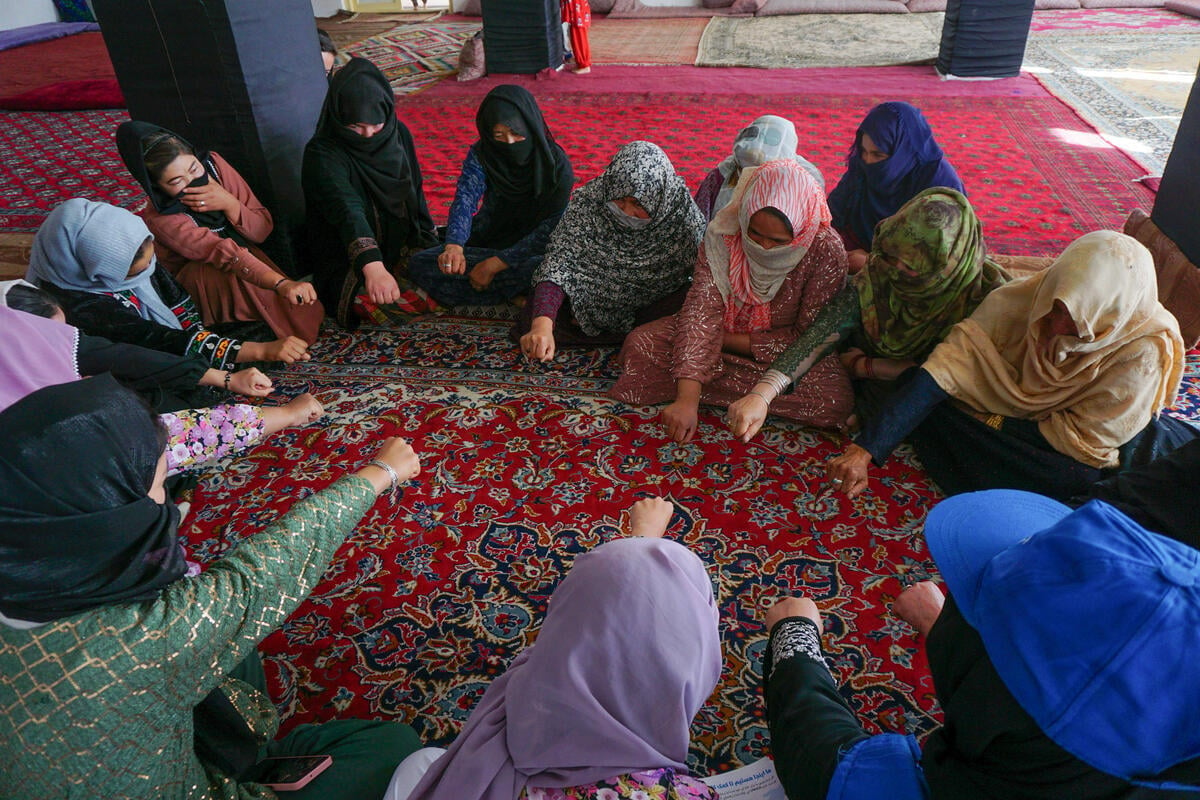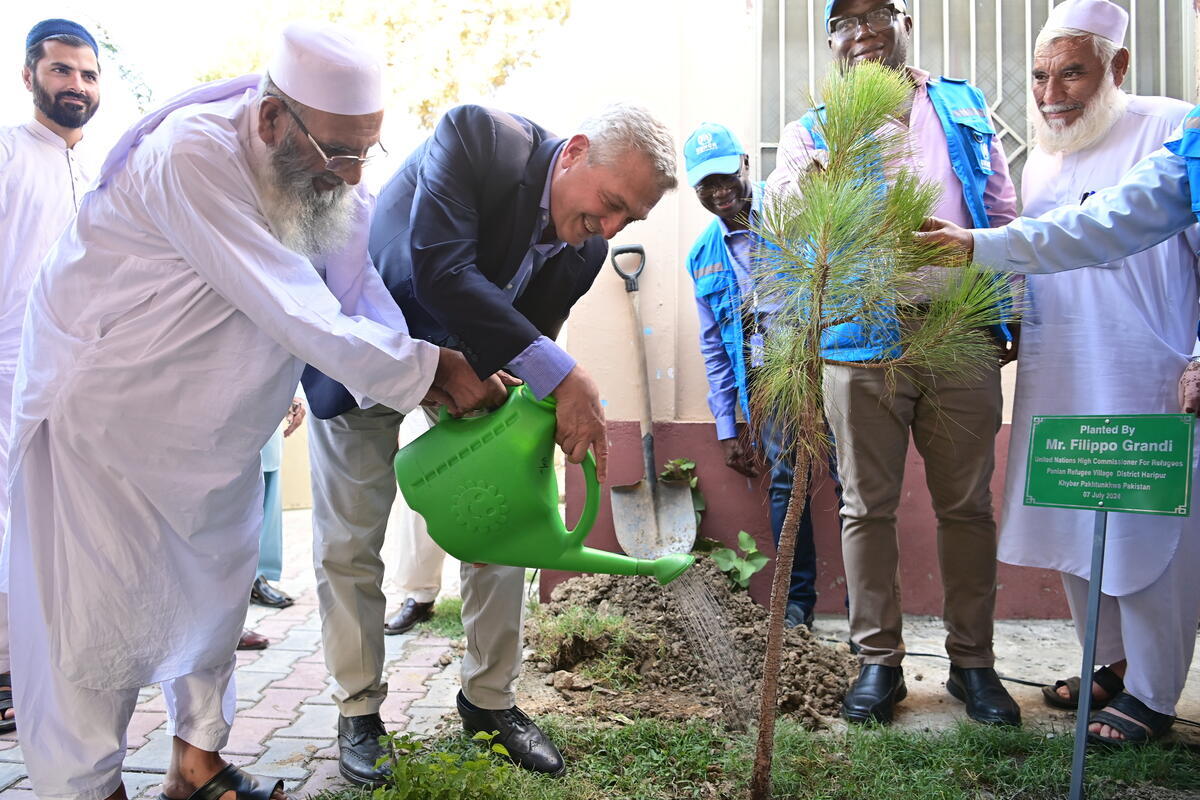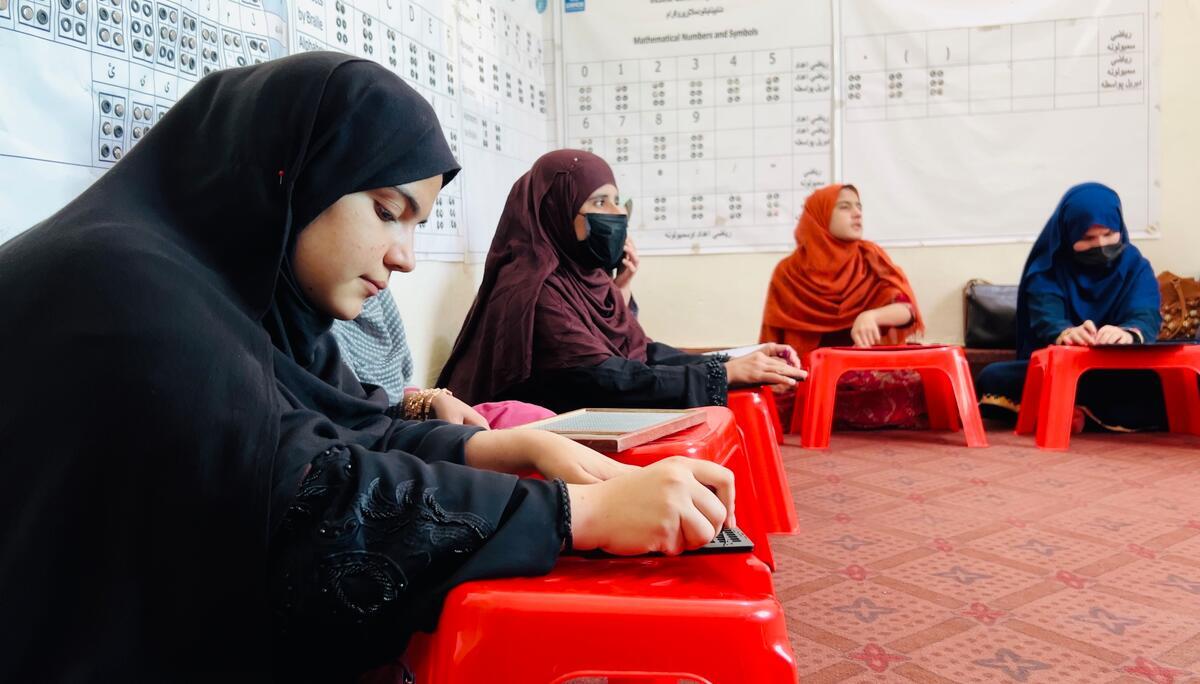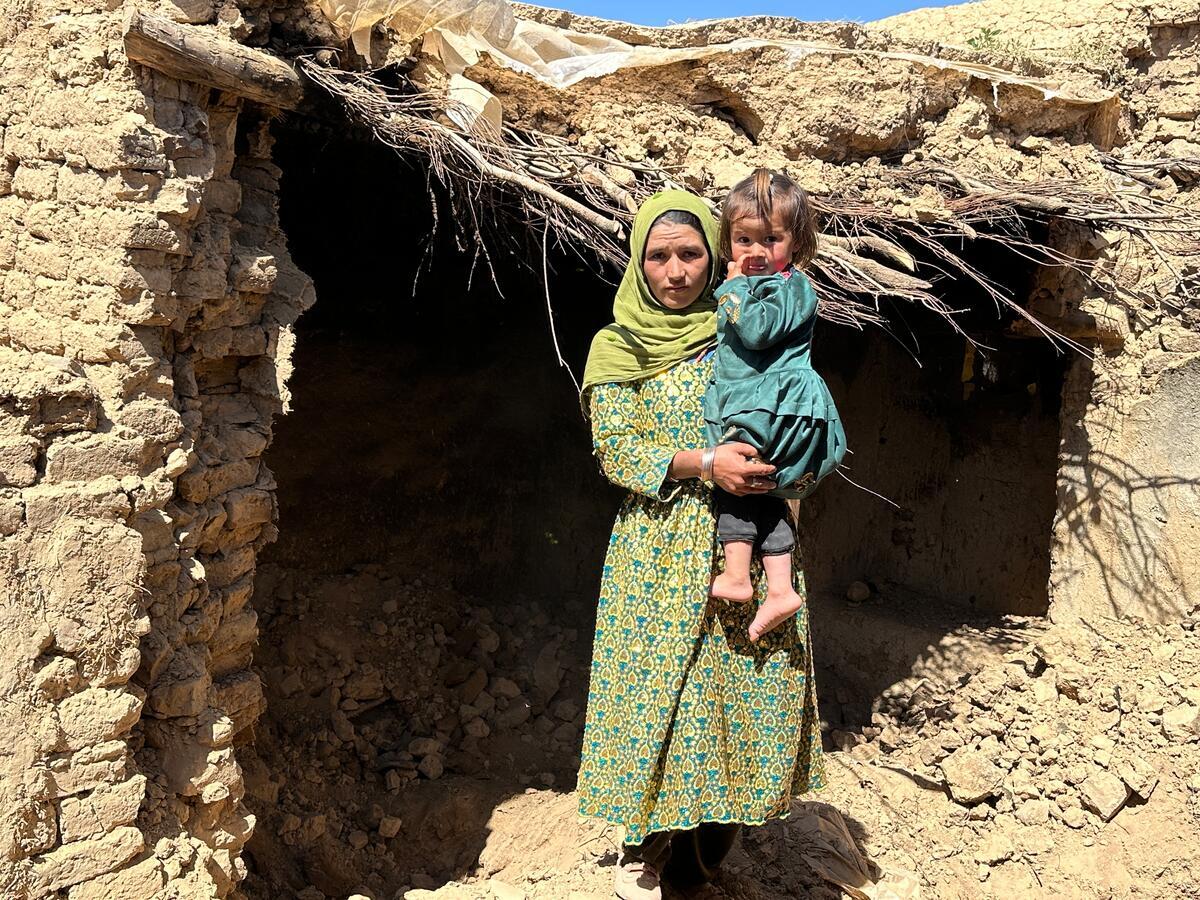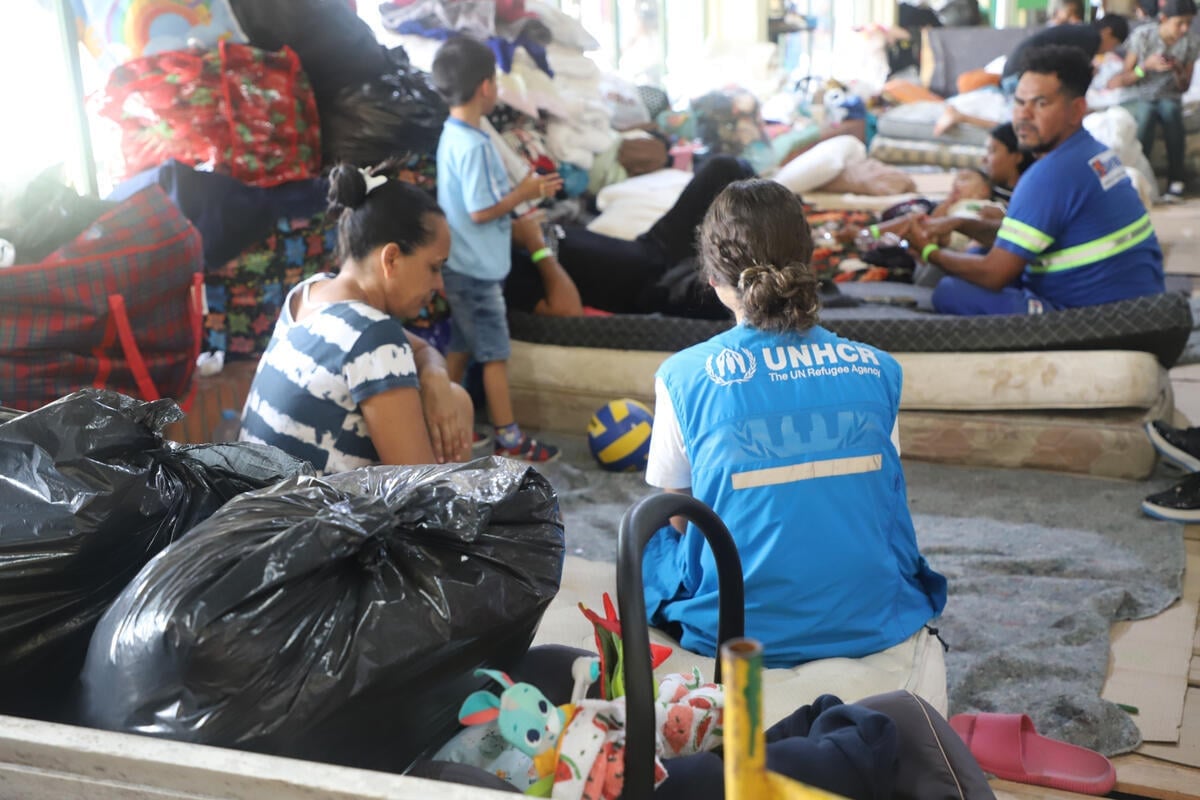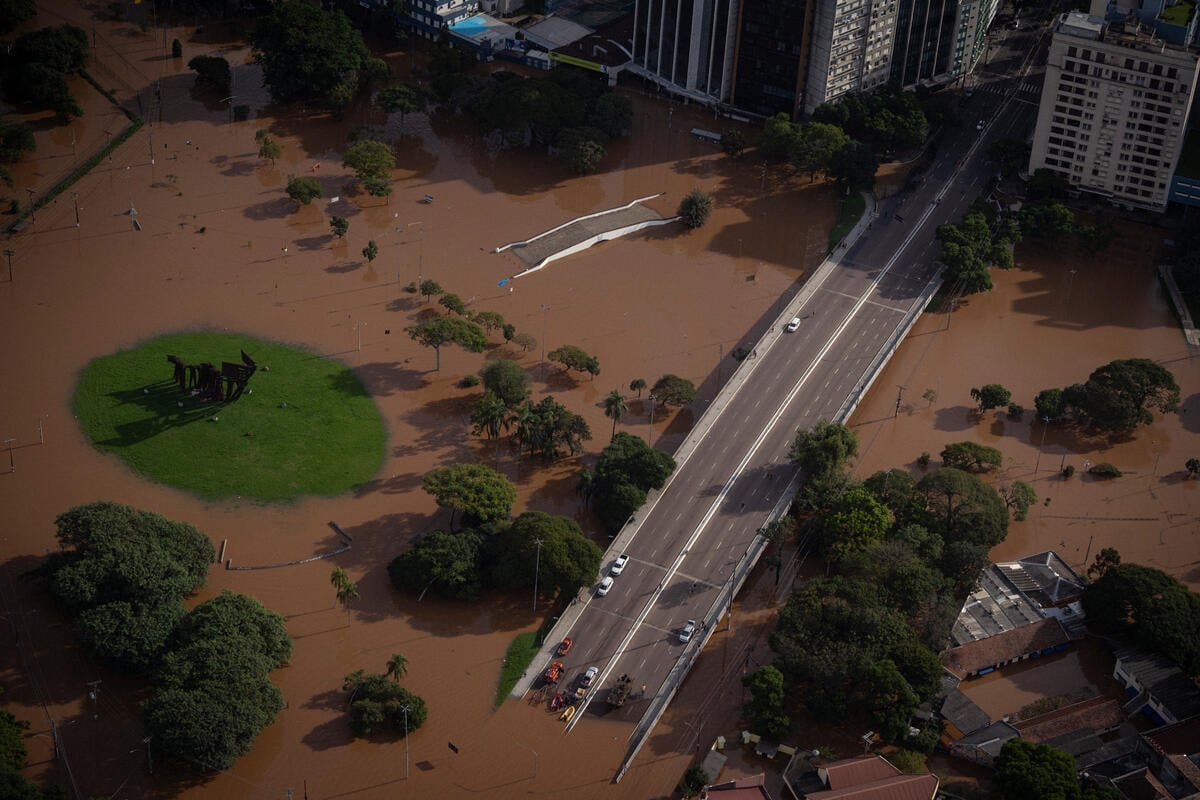Afghanistan: another record day of assisted returns
Afghanistan: another record day of assisted returns
Yesterday, we aided 5,700 people - the largest daily number of Afghan returnees since joint UNHCR-Afghan Interim Authority operations started last Friday - back to their homes. Returnees included Afghans from Pakistan as well as people displaced within Afghanistan.
In the last week, we have helped more than 15,600 Afghans return, most of them refugees who repatriated from Pakistan. But the number also includes 1,700 displaced people who were returned to the Shomali Plain after living for the last three years in Kabul's former Soviet compound.
The UNHCR-assisted repatriation initiative from Pakistan has been rapidly gathering momentum. Yesterday, we had a record 4,700 people - 909 families - passed through our registration centre at Takhtabaig, outside Peshawar travelling in 361 vehicles. Each spontaneous returnee receives $20 upon their arrival in Afghanistan. Each family gets a returnee kit containing a plastic tarpaulin, blankets, a sleeping mat, quilts, tools and other items, along with 150 kilogrammes of food from the World Food Programme.
Before departing Takhtabaig with their registration papers, the Afghans are briefed about the danger of land mines and other ordnance and counselled about the precarious situation in some parts of Afghanistan. We tell them to avoid some provinces, including Paktia, Khost, Paktika, Zabul, Uruzgan, Nimroz, Helmand, Farah and areas like Tora Bora in the east and Sholgara in the north. These areas remain prone to banditry, open fighting, or even ethnic-oriented attacks against minority communities.
We advise returnees not to travel at night, but this is a self-organized movement and Afghans travel on their own. Unfortunately it's not very safe: last Tuesday night several families who opted to repatriate under the initiative had their truck looted by bandits near Jalalabad.
In Kabul, UNHCR and the Afghan government continue to oversee the return of displaced Afghan families from the ex-Soviet embassy compound back to their villages on the Shomali Plain. In the past two days, over 1,700 displaced people have gone back to Shomali. In the next two weeks, we hope to aid up to 15,000 displaced people to leave their squalid apartments. The returnees to Shomali get the same assistance package that refugees repatriating from Pakistan get, with WFP distributing food aid and the International Organization for Migration providing transport.
But while returns to Afghanistan gather momentum, some Afghans continue to leave their country. An estimated 10,000 Afghans are waiting at the edge of the Killi Faizo transit camp at the Chaman border crossing between Pakistan and southern Afghanistan's Kandahar Province for registration to resume. The Pakistani authorities stopped registration at the Killi Faizo site on February 21, and we haven't been given the green light to resume.
So far this year, more than 47,000 Afghans have entered Pakistan and been assisted at UNHCR's new camps near Chaman. Most of these new arrivals are fleeing a lack of food in remote areas of the country. Many are also Kuchi nomads who have lost their herds due to the drought. Some of the new arrivals are ethnic Pashtuns who say they were targeted by bandits or other armed marauders in the north of the country, where they are a minority group.


